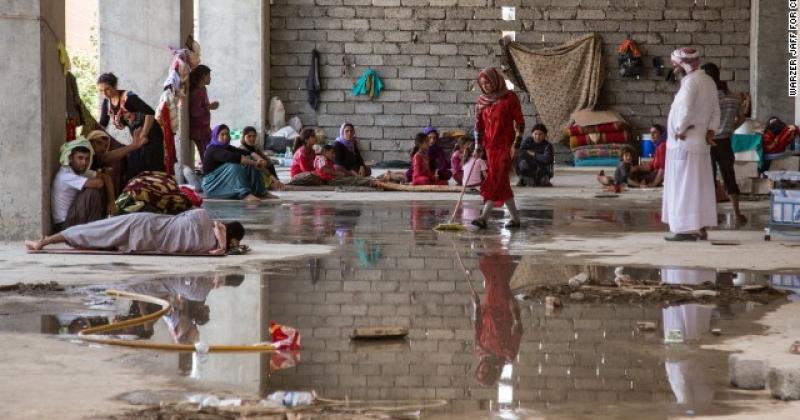Following is a reportage from a structure run the Latin Vicariate in Jordan, that hosts Christian refugee:
They stop what they’re doing for a minute, their hands covered in saw dust and smudged with glue and varnish. They are all from Mosul, the ancient city of Nineveh, an Assyrian city mentioned in the Bible, which fell into ISIS’s hands two years ago. There is still fear in their eyes and resignation in their voices. “Even if our land was eventually freed, we are too scared to go back…” Looking at the faces of 68-year-old Zuhair Azouz and his 26-year-old son Ihab, Iraqi refugees living in Jordan, it is evident that al-Baghdadi’s Caliphate is but the latest and most tragic chapter of a story that began many years ago.
We are at the Our Lady of Peace Center in Amman, a structure run by the Latin Vicariate, which includes an institute for children with serious motor or mental disabilities and a laboratory where artificial limbs are made for those who have lost them in bomb attacks. In some white containers behind the structure, men and women make chairs and tables, organic soap and cushions decorated with leftover scraps of fabric. These men and women – Iraqi Christian refugees who escaped Mosul when ISIS arrived in the city in the summer of 2014 – once lived in those containers. Now, thanks to the help of Caritas Jordan, they are able to rent rooms and emergency structures have been turned into workplaces. Zuhair Azouz used to work as a mechanic fixing cars. Ihab was in his third year at university, studying Biology. They now earn a living making made-to-order furniture and dream of joining their relatives in Australia. “We didn’t want to go,” they told Vatican Insider,” but we had no choice, we were driven out and forced to leave our homes, our occupations and our land. We don’t want to go back to Mosul. Even if ISIS is defeated, even if it is no longer around. We are scared…” When asked why, they reply: “after ISIS, someone else will come,” father and son agree, “there will be acts of revenge; for us, life in Mosul is over. After every war someone always does something to Christians. Before ISIS there were other militia groups.” Refugees poured criticism on the Iraqi government which has double standards, they explain: “The tax collector arrives and if a Muslim can’t or doesn’t want to pay, everything’s settled. Christians on the other hand don’t have a choice.”
Sandy Hikumat Hana, 36, fled Mosul on 6 August 2014, after a bomb attack that left thousands lifeless and after the kidnapping of thousands of Yazidi girls.” When Saddam Hussein was around there was peace and relations with Christians were good. The economic situation was still bad back then, there was poverty. But at least we were guaranteed a social life and the chance to express our faith. As far as violence goes, 30 Christian girls were kidnapped in Kirkuk, but that was before ISIS arrived.”
These refugees do not intend to return to Iraq but neither do they plan to stay in Jordan: “We would rather go somewhere far away from Arab countries. We are thinking of our children. For us, Europe is the future. I applied for asylum in France but I wasn’t successful.” 32-year-old Nassam Rafuca, another young man from Mosul recalls: “We decided to be faithful to Jesus, to not turn our backs on our Christian faith and to leave our city. We cannot forgive ISIS for that.”
At the Our Lady of Peace Center, there is a delegation representing the Movement of Christian Workers, headed by President Carlo Costalli, who is to fund a solar panel system and a water purifier. The delegation is welcomed by a Syrian nun, Sister Rudeina, who up until two months ago worked at a hospital inside a war zone. Today, the Salesian nun, along with two other fellow nuns, helps run the children’s hospital. When she was in Syria in the last two years, her patients at the hospital included ISIS militants. We ask her how she acted towards them. “We tried to treat them, showing them even more love than the rest,” she replies.
